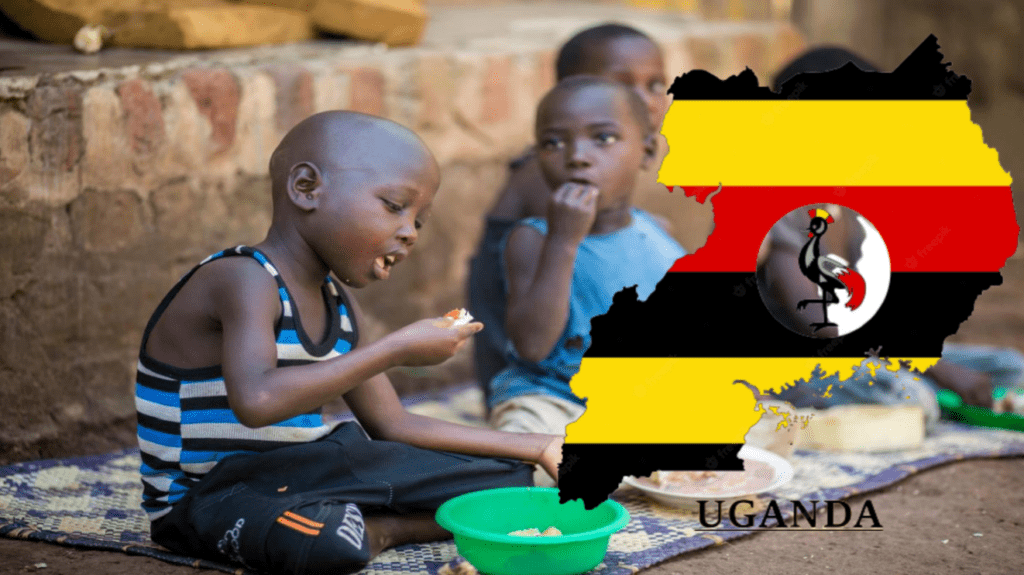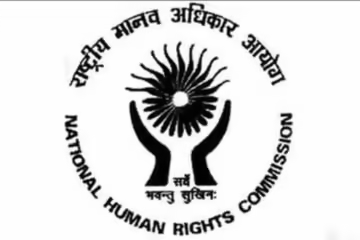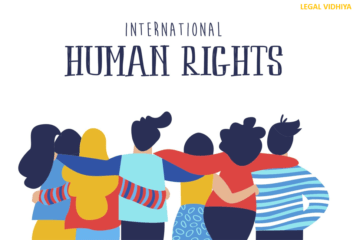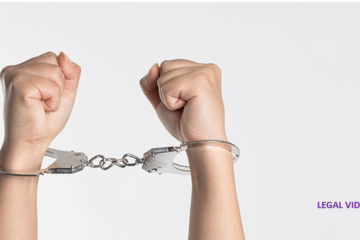
This article is written by Manashvi Rawat (BBA/LLB (H), 5th Semester)Shri Ramswaroop Memorial University, Barabanki, An intern under Legal Vidhiya.
“When human rights are violated, humanity itself is wounded.”
ABSTRACT
In Uganda, the issue of human rights violations stands as a poignant reminder of the delicate balance between progress and persistent challenges. The historical backdrop of Uganda is intertwined with a complex tapestry of political, social, and economic fluctuations. While strides have been made towards democratic governance and development, instances of human rights violations remain a pressing concern. The violation of civil and political rights is conspicuous through cases of political repression, limitations on freedom of expression, and reports of police brutality. These infringements serve as stark reminders of the fragility of democratic institutions and the importance of safeguarding the space for dissenting voices. Additionally, Uganda grapples with violations of economic and social rights, notably in the realms of healthcare and education. Accessibility to quality healthcare and education continues to be a challenge, disproportionately affecting marginalized communities. The violation of these rights further perpetuates cycles of poverty and inequality, hindering the nation’s progress towards inclusive development. Of grave concern is the persistent issue of gender-based violence and discrimination. Women and girls face a disproportionate burden of these violations, stemming from deep-rooted cultural norms and unequal power dynamics. Efforts to address this issue are crucial not only for the well-being of individuals but also for the overall advancement of society.
INTRODUCTION
Uganda, a country known for its diverse cultural heritage and stunning landscapes, has also been marked by a history of human rights violations. Despite its progress in certain areas, Uganda continues to grapple with a range of human rights challenges that impact the lives of its citizens. From political repression to discrimination against marginalized groups, this article delves into the multifaceted issues that contribute to human rights violations in the country. Uganda has faced significant challenges in terms of human rights violations over the years. These violations span various aspects of society, including political repression, discrimination, freedom of expression, and access to basic services. It’s essential to acknowledge that the situation is complex and multifaceted, involving a combination of historical, social, and political factors. The violation of human rights in Uganda has been attributed to various factors, including political instability, conflicts, and government actions. Some key events include the rule of Idi Amin in the 1970s, during which widespread torture and extrajudicial killings were reported. The civil war in the 1980s, led by the National Resistance Army (NRA), also resulted in human rights abuses on both sides. In recent years, President Yoweri Museveni’s long-term rule has been criticized for suppressing political opposition and limiting freedom of expression. Additionally, laws targeting the LGBTQ+ community and the criminalization of same-sex relations have raised concerns. Economic disparities and lack of access to basic services have also contributed to human rights challenges. It’s important to note that the situation is complex, and violations have resulted from a combination of historical, political, and social factors. The condition of people due to violation of human rights in Uganda is very poor and alarming. According to Human Rights Watch, the people of Uganda have faced widespread abuses, such as arbitrary arrests, beatings, killings, torture, and displacement, by the security forces and the government. The people have also suffered from discrimination, violence, and stigma based on their sexual orientation, gender identity, ethnicity, or political affiliation. The people have been denied their rights to freedom of expression, assembly, association, and participation in the political process. The people have also been affected by the environmental and social impacts of oil and gas projects, which have threatened their rights to land, livelihood, environment, and consultation. The violation of human rights in Uganda has also had negative consequences for the development and stability of the country. It has undermined democracy and the rule of law, increased corruption and impunity, fueled conflicts and humanitarian crises, and hampered economic and social progress.
HISTORY
The history of human rights violations in Uganda is a long and complex one, involving various actors, causes, and consequences. Here is a brief overview of some of the main events and issues that have shaped the human rights situation in Uganda over the years:
Uganda gained independence from Britain in 1962, but soon faced political instability, ethnic divisions, and military coups. The first president, Milton Obote, was overthrown by his army chief, Idi Amin, in 1971. Amin ruled Uganda with an iron fist for eight years, during which he committed gross human rights violations, including massacres, torture, disappearances, and expulsion of Asians. He was ousted by a coalition of Tanzanian troops and Ugandan exiles in 1979, After a brief period of transitional governments, Obote returned to power in 1980 through a disputed election. His second regime was marked by widespread human rights abuses, especially in the northern and eastern regions, where he faced armed resistance from several rebel groups. One of these groups was the National Resistance Army (NRA), led by Yoweri Museveni, who eventually seized power in 1986 after a five-year guerrilla war.
Museveni has been the president of Uganda ever since, extending his rule through constitutional amendments that removed term and age limits, and through elections that have been marred by irregularities, violence, and intimidation. His government has been accused of violating civil and political rights, such as freedom of expression, assembly, association, and media; as well as economic, social, and cultural rights, such as access to health care, education, and land. One of the most serious human rights challenges that Museveni’s government has faced is the conflict in the north between the government and the rebel group Lord’s Resistance Army (LRA), which started in 1987. The LRA, led by Joseph Kony, claimed to fight for the rights of the Acholi people, but resorted to brutal tactics such as abduction, killing, torture, rape, and mutilation of civilians, especially children. The LRA also committed atrocities in neighboring countries such as South Sudan, the Democratic Republic of Congo, and the Central African Republic. Although a cessation of hostilities agreement was signed in 2006, the LRA leader Joseph Kony remains at large and some of his followers continue to pose a threat to peace and security.
Another major human rights issue that Museveni’s government has faced is the persecution of lesbian, gay, bisexual, transgender, and intersex (LGBTI) people by the government and society. Uganda has discriminatory laws and policies that criminalize same-sex relations and promote homophobia. The government has raided LGBTI shelters and organizations, arrested and charged LGBTI activists and individuals, subjected them to torture and forced anal examinations, denied them access to health care and legal services, and incited violence and hate speech against them. The government has also attempted to pass legislation that would impose harsher penalties for homosexuality, including the death penalty.
These are some of the major human rights violations in Uganda that have been documented by various sources. However, there may be other forms of human rights abuses that are not reported or recognized.
FACTORS RESPONSIBLE FOR HUMAN RIGHTS VIOLATION
- Political repression and violence- One of the main causes of human rights violations in Uganda is the political repression and violence by the government against opposition parties, activists, journalists, and critics, especially during and after the 2021 general elections . The government used excessive force, arbitrary arrests, torture, abductions, and internet shutdowns to silence dissent and prevent free and fair elections. The security forces also targeted people who participated in protests over the arrest of opposition presidential candidate Robert Kyagulanyi in November 2020. According to Human Rights Watch, at least 54 people were killed and hundreds injured by the security forces during the protests. The government also restricted the media and civil society from covering the elections and monitoring the human rights situation.
- Discrimination and persecution of sexual and gender minorities- Another cause of human rights violations in Uganda is the discrimination and persecution of sexual and gender minorities by the government and society. The authorities have raided shelters for homeless LGBTI youth, arrested and charged them with violating Covid-19 regulations, and subjected them to abuse and humiliation. The government has also proposed a bill that would criminalize homosexuality and impose the death penalty for some offenses. The bill, which was first introduced in 2009 but was later annulled by the Constitutional Court in 2014, was revived in 2019 by a group of lawmakers who claimed that it was necessary to protect the culture and morals of Uganda. The bill has not yet been passed by the parliament, but it has created a climate of fear and hostility for LGBTI people in Uganda.
- Impact of the past conflict in the north- A third cause of human rights violations in Uganda is the impact of the past conflict in the north of the country between the Uganda People’s Defence Force (UPDF) and the Lord’s Resistance Army (LRA), which lasted from 1987 to 2006. The conflict resulted in widespread atrocities, displacement, poverty, and trauma for millions of people, especially children who were abducted and forced to fight as soldiers or sex slaves by the LRA. The victims of the conflict have not received adequate justice, reparations, or psychosocial support from the government or the international community. The government has also failed to implement the recommendations of the Justice Law and Order Sector Transitional Justice Working Group, which was established in 2009 to develop a comprehensive transitional justice policy for Uganda.
- Human rights violations linked to investments in fossil-fuel projects- A fourth cause of human rights violations in Uganda is the human rights violations linked to investments in fossil-fuel projects, such as the East African Crude Oil Pipeline (EACOP), which is expected to run from Uganda to Tanzania. The projects have led to the eviction of hundreds of people from their land without fair and adequate compensation, the harassment and intimidation of human rights defenders and NGOs working in the oil and gas sector, and the environmental degradation and climate change impacts of the oil extraction and transportation. The projects have also faced resistance from local communities who have expressed concerns about their livelihoods, health, safety, and cultural heritage. The government has responded by cracking down on dissent and limiting public participation and consultation on the projects.
- Poverty and Socioeconomic Inequality- High levels of poverty and inequality contribute to a cycle of human rights violations. Vulnerable populations are more susceptible to exploitation, child labor, and lack of access to education and healthcare.
- Land Disputes and Forced Evictions- Land disputes and forced evictions, often driven by commercial interests or development projects, have led to displacement and violations of property rights for vulnerable communities.
- The lack of respect for the rule of law and democracy by the government, which has been in power for over three decades. The government has used repressive laws, such as the Public Order Management Act, to restrict the rights of opposition parties, civil society, and media. The government has also interfered with the independence of the judiciary and the electoral commission.
- The influence of conservative religious and cultural values, which have fueled discrimination and violence against sexual and gender minorities, women, and children. The government has failed to protect the rights of these groups, and has sometimes enacted laws that criminalize their identities and expressions, such as the Anti-Homosexuality Act of 2014 (later annulled by the Constitutional Court). These groups have also faced social stigma and harassment from their families and communities.
- The impact of armed conflicts and humanitarian crises, which have displaced millions of people and exposed them to various human rights violations. Uganda has been affected by both internal and external conflicts, such as the Lord’s Resistance Army insurgency in the north, and the influx of refugees from neighboring countries, like the Democratic Republic of the Congo and South Sudan. These conflicts have resulted in widespread human rights abuses, such as killings, rape, abduction, recruitment of child soldiers, and looting. They have also disrupted the provision of basic services, such as health, education, and water.
Addressing these issues requires a comprehensive approach involving legal reforms, improved governance, civic education, and international pressure to uphold human rights standards.
IMPACT OF HUMAN VIOLATION
Human rights violations in Uganda have a negative impact on the lives and well-being of the people, as well as on the stability and development of the country. Some of the impacts are:
- Violation of the right to life: According to Human Rights Watch, security forces killed at least 54 people in November 2020, when they violently dispersed protests over the arrest of opposition presidential candidate Robert Kyagulanyi. The use of excessive force and lethal weapons by the police and military against unarmed civilians violates their right to life and dignity, and undermines the rule of law and accountability.
- Violation of the right to freedom of expression and assembly: The government has imposed restrictions on media coverage, online communication, and public gatherings, especially for opposition groups and critics. This limits the space for democratic participation, dissenting opinions, and access to information. It also creates a climate of fear and intimidation, where people are afraid to express their views or challenge the authorities. The suppression of freedom of expression and assembly also violates Uganda’s obligations under international human rights law, such as the International Covenant on Civil and Political Rights.
- Violation of the right to health: The Covid-19 pandemic has exposed the weaknesses and inequalities in Uganda’s health system, which is underfunded, understaffed, and poorly equipped. The government’s response to the pandemic has been marred by corruption, mismanagement, and human rights abuses. For example, security forces have used Covid-19 restrictions as a pretext to beat, extort, and arbitrarily detain people¹. The government has also failed to provide adequate social protection and relief measures for the most vulnerable groups, such as the poor, the elderly, the disabled, Violation of the right to non-discrimination: Uganda has a history of discrimination and violence against marginalized groups, such as ethnic minorities, women, children, refugees, and LGBTI people. These groups face systemic barriers to accessing education, employment, justice, health care, and other basic services. They also face harassment, intimidation, and persecution from state and non-state actors. For instance, in March 2020, police raided a shelter for homeless LGBTI youth in Wakiso district, beat and arrested 23 adults, and charged them with “a negligent act likely to spread infection of disease” and “disobedience of lawful orders”¹. In August 2020, a 20-year-old man became the first Ugandan to be charged with “aggravated homosexuality” under the anti-gay law enacted in 2014³. He faces a possible death penalty if convicted. The violation of the right to non-discrimination fuels hatred, violence, and exclusion in society, and denies people their dignity and equality. and the homeless. The violation of the right to health jeopardizes the lives and livelihoods of millions of Ugandans, and hampers the efforts to contain the spread of the virus.
- Violation of the right to non-discrimination: Uganda has a history of discrimination and violence against marginalized groups, such as ethnic minorities, women, children, refugees, and LGBTI people. These groups face systemic barriers to accessing education, employment, justice, health care, and other basic services. They also face harassment, intimidation, and persecution from state and non-state actors. For instance, in March 2020, police raided a shelter for homeless LGBTI youth in Wakiso district, beat and arrested 23 adults, and alleged “disobedience of lawful orders” and “a careless act likely to spread disease infection” against them.
- Economic Impact- Human rights abuses contribute to economic instability and hinder development. Forced displacement disrupts livelihoods, and corruption diverts resources away from essential services and infrastructure projects.
- International Reputation and Diplomacy- Persistent human rights violations tarnish Uganda’s international reputation and can strain diplomatic relations. This can impact trade, foreign aid, and collaboration on global issues.
STEPS THAT CAN BE TAKEN TO HELP IN THE STUATION OF UGANDA
There are several steps that can be taken to help the situation in Uganda for violation of human rights. Some of these steps include:
- Supporting human rights organizations: Organizations such as Amnesty International work to protect and promote human rights in Uganda and around the world. Supporting these organizations can help them continue their important work.
- Raising awareness: Raising awareness about the human rights situation in Uganda can help bring attention to the issue and put pressure on the government to make changes.
- Contacting government representatives: Contacting government representatives and urging them to take action to address human rights violations in Uganda can help bring about change.
- Supporting refugees and asylum seekers: Uganda is home to many refugees and asylum seekers who have fled human rights violations in their home countries. Supporting organizations that provide assistance to these individuals can help improve their situation.
It’s important to note that addressing human rights violations is a complex issue and requires a multi-faceted approach. These are just a few of the steps that can be taken to help the situation in Uganda.
CONCLUSION
Uganda’s human rights violations paint a somber picture of the challenges that persist within the nation. Addressing these issues requires a multi-pronged approach that includes legal reforms, public awareness campaigns, and international pressure. By dismantling systems of repression, fostering inclusivity, and promoting respect for human rights, Uganda can pave the way for a brighter and more equitable future for its citizens. The collective effort of government, civil society, and international partners is essential in ensuring that the rights and dignity of every Ugandan are upheld and protected.
REFERENCES
- UGANDA: GUARANTEE HUMAN RIGHTS, Amnesty International, https://www.amnesty.org/en/wp-content/uploads/2021/08/AFR5945392021ENGLISH.pdf, last seen on 28/08/2023
- UGANDA 2020 HUMAN RIGHTS REPORT, U.S. Department of State, https://www.state.gov/wp-content/uploads/2021/03/UGANDA-2020-HUMAN-RIGHTS-REPORT.pdf, last seen on 29/08/2023
- Preventing human rights violations, OHCHR, https://www.ohchr.org/en/prevention-and-early-warning/preventing-human-rights-violations, last seen on 28/08/2023
- World Report 2022: Uganda,| Human Rights Watch, https://www.hrw.org/world-report/2022/country-chapters/uganda, last seen on 28/08/2023
- World Report 2021: Uganda, Human Rights Watch, https://www.hrw.org/world-report/2021/country-chapters/uganda, last seen on 28/08/2023
- Human Rights Violations in Uganda, LawAspect, https://lawaspect.com/human-rights-violations-uganda/, last seen on 28/08/2023
- Human rights in Uganda, Wikipedia, https://en.wikipedia.org/wiki/Human_rights_in_Uganda, last seen on 28/08/2023
- World Report 2022: Uganda, Human Rights Watch, https://www.hrw.org/world-report/2022/country-chapters/uganda, last seen on 28/08/2023
- World Report 2021: Uganda, Human Rights Watch, https://www.hrw.org/world-report/2021/country-chapters/uganda, last seen on 28/08/2023
- Human Rights Violations in Uganda – The Borgen Project. https://borgenproject.org/human-rights-violations-uganda/, last seen on 28/08/2023
- Violations of human rights in Uganda and Tanzania, https://www.europarl.europa.eu/doceo/document/TA-9-2022-0321_EN.html, last seen on 28/08/2023
- Uganda – United States Department of State, https://www.state.gov/reports/2019-country-reports-on-human-rights-practices/uganda/, last seen on 28/08/2023
- Uganda’s human rights record to be examined by Universal Periodic, United Nations, https://www.ohchr.org/en/2022/01/ugandas-human-rights-record-be-examined-universal-periodic-review, last seen on 28/08/2023




0 Comments